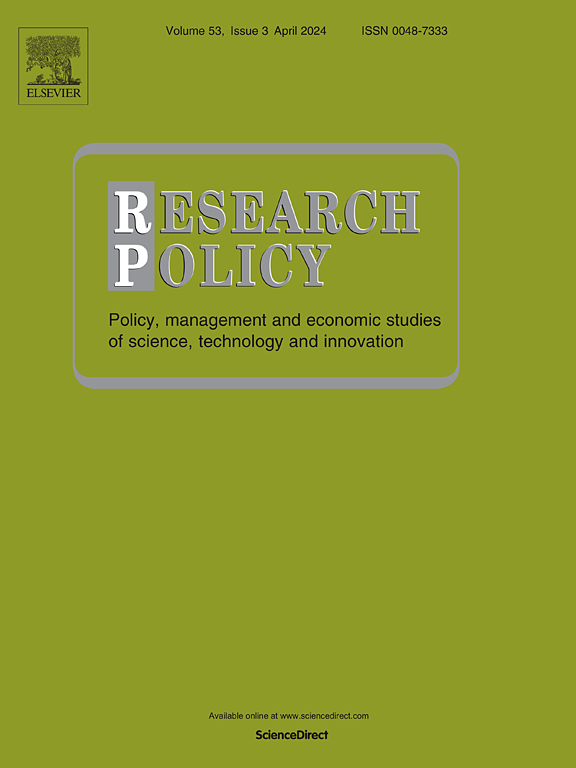数字化转型的制度化:数字创新中介机构的作用
IF 8
1区 管理学
Q1 MANAGEMENT
引用次数: 0
摘要
作为数字政策议程的一部分,数字创新中介机构的任务是支持数字转型,我们将研究这些中介机构如何开展制度工作,促进数字技术的采用和传播。在新制度理论和社会技术转型文献的基础上,我们的调查旨在揭示中介机构在组织、网络和生态系统三个中介层次上的文化认知、规范和监管制度方面的制度工作。基于与法国 18 家政府资助的数字创新中介机构相关的大量证据(包括第一手和第二手资料),我们揭示了中介机构在促进数字转型过程中开展的各种形式的制度工作。我们发现,中介机构的机构工作主要集中在破坏符号系统、创建关系系统和人工制品,以及创建和维护常规。中介人在不同的中介层次开展不同类型的机构工作。此外,不同类型的中间人专注于不同的中介层次和不同的机构。本文讨论了对政策和管理的影响。本文章由计算机程序翻译,如有差异,请以英文原文为准。
Institutionalising the digital transition: The role of digital innovation intermediaries
We examine how digital innovation intermediaries, mandated to support the digital transition as part of digital policy agendas, engage in institutional work to facilitate the adoption and diffusion of digital technologies. Building on neoinstitutional theory and the socio-technical transitions literature, our investigation aims to uncover intermediaries' institutional work on cultural-cognitive, normative, and regulative institutions across three levels of intermediation: organisation-, network- and ecosystem level. Based on a large evidence base related to 18 publicly-funded digital innovation intermediaries in France, including primary and secondary sources, we uncover the various forms of institutional work intermediaries engage in while facilitating the digital transition. We find that intermediaries' institutional work focuses on disrupting symbolic systems, creating relational systems and artefacts, and creating and maintaining routines. Intermediaries carry out different kinds of institutional work at different levels of intermediation. Furthermore, different types of intermediaries focus on distinct levels of intermediation and different institutions. Implications for policy and management are discussed.
求助全文
通过发布文献求助,成功后即可免费获取论文全文。
去求助
来源期刊

Research Policy
MANAGEMENT-
CiteScore
12.80
自引率
6.90%
发文量
182
期刊介绍:
Research Policy (RP) articles explore the interaction between innovation, technology, or research, and economic, social, political, and organizational processes, both empirically and theoretically. All RP papers are expected to provide insights with implications for policy or management.
Research Policy (RP) is a multidisciplinary journal focused on analyzing, understanding, and effectively addressing the challenges posed by innovation, technology, R&D, and science. This includes activities related to knowledge creation, diffusion, acquisition, and exploitation in the form of new or improved products, processes, or services, across economic, policy, management, organizational, and environmental dimensions.
 求助内容:
求助内容: 应助结果提醒方式:
应助结果提醒方式:


